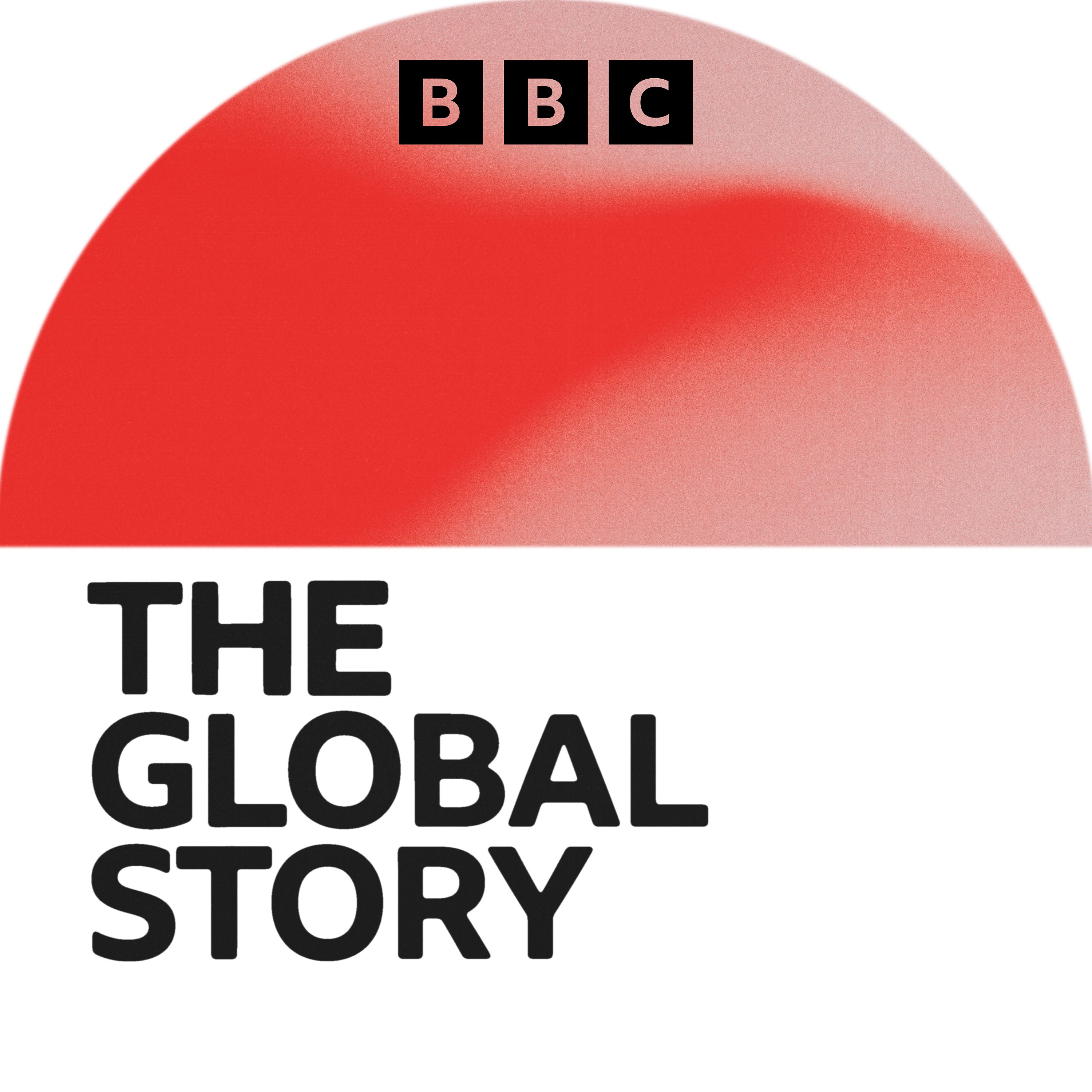
Brian's Run Pod
Welcome to Brian's Run Pod, the podcast where we lace up our running shoes and explore the exhilarating world of running. Whether you're a seasoned marathoner, a casual jogger, or just thinking about taking your first stride, this podcast is your ultimate companion on your running journey.
Join us as we dive deep into the sport of running, covering everything from training tips and race strategies to personal stories and inspiring interviews with runners from all walks of life. Whether you're looking to improve your race times, stay motivated, or simply enjoy the therapeutic rhythm of running, Brian's Run Pod has something for every runner.
Brian's Run Pod
Nutrition Unlocked: Secrets to Optimal Health with Dr Monika Gostic
Nutrition expert Dr Monika Gostic discusses how personalised nutrition can transform wellbeing. She emphasises the importance of understanding individual needs regarding diet and health.
• Introduction to Dr Monika Gostich and her work in personalised nutrition
• Exploring the connection between gut microbiome, nutrition, and mental health
• The pitfalls of fad diets and the importance of nutrition diversity
• Understanding chronic inflammation and its effects on the body
• Practical dietary tips for optimal health and running performance
• The evolving nature of dietary science and individualised health strategies
Dr Monika Gostic Website
Brian's Run Pod has become interactive with the audience. If you look at the top of the Episode description tap on "Send us a Text Message". You can tell me what you think of the episode or alternatively what you would like covered. You might even get a mention!
Instagram
Hi everyone. Just a quick introduction about the episode today. Well, today I interviewed nutritionist Dr Monica Gostich from the University of Aberdeen. She shares her expertise on nutrition and wellness, focusing on personalization and the gut microbiome. The episode explores the connection between nutrition, mental health and the lifestyle choices for optimal well-being. As is usual, I split the interview into two. I really do hope you enjoy our chat. So you're thinking about running, but not sure how to take the first step. My name is Brian Patterson and I'm here to help. Welcome to Brian's Rompod. I'm your host, brian Patterson, and today we have a truly inspiring guest joining us. She's a multi-award winning nutritionist, a dedicated scientist and the founder of the Breaking Bad movement.
Speaker 1:Balanced, authentic, deserving. Dr Gostich has been recognised six times for her innovative approach to wellness, most recently receiving the Excellence Award in the Wellness Innovation in 2024 for Scotland. Her work focuses on managing chronic conditions through personalised nutrition and lifestyle medicine, as she puts it. In Scotland, chronic diseases are a growing concern, but if 60% of people manage their health through lifestyle interventions like balanced nutrition and regular physical activity, the economic and social benefits will be transformative. Beyond her accolades, dr Gostyich is a teaching fellow of the University of Edinburgh sorry Aberdeen, collaborating with the Rowett Institute to ensure her approach is backed by the latest scientific research. She's also a competitive powerlifter and a mother embodying balance she advocates for. In today's episode we'll dive into Dr Monica's journey, her philosophy on nutrition and practical tips for runners, including to optimize their health. So lace up your running shoes and get ready for an enlightening conversation with dr monica.
Speaker 1:Hope you enjoyed that that was great, thank you anyway, like I like to do with most of my guests is go back to you know. High school was exercise. Where were you naturally a gifted athlete or were you very much someone who was quite academic?
Speaker 2:I was always very academic and I absolutely detested sports. Anything to do with movement, that was not my jam at all. I was actually overweight my entire life, and physical education turned out to be a torture for me, because the teachers didn't really adjust the levels to those of us who didn't have sporty background or who didn't have the parents who would encourage movement in-house. So I was definitely an academic. I was always the smartest kid on the block and I was a musician in those times, so I spent my days sitting down and playing an instrument rather than running around the block like most of the other kids did.
Speaker 1:What instrument were you playing?
Speaker 2:Clarinet.
Speaker 1:Clarinet. Oh right, okay, woodwind, excellent. Yes, most of the other kids did what?
Speaker 2:what instrument were you playing? Clarinet, clarinet, all right, okay. Woodwind, excellent, yes, it was, it was great, loved it. But time, times change, so now we swapped that and now I do exercise very fondly, very regularly, and I don't play music anymore you have to choose your, your stuff what was that transition?
Speaker 1:I mean when you did you go to university and was there kind of like a point when you're at university and I thought, oh well, I'll give this a try it's a little bit more complex than that as I mentioned, I was overweight my entire life and I was marginalized because of that.
Speaker 2:My family tried to help me in inverted quotes, in ways of trying to force me to diet, splitting meals whenever we went places. They would police what I would be eating, yeah, instead of teaching me really how to get to the root cause, which was mostly emotional, yeah, and I struggled a lot with feelings of isolation and shame, which I then I found comfort in the fridge, oh right, and in the pantry okay so that translated in low self-esteem and a lot of other issues.
Speaker 2:So as I kind of went into teenage years and then started being a bit older, like 16, 17, I started dieting like a champion.
Speaker 1:Oh, right, okay.
Speaker 2:I tried every single diet under the sun.
Speaker 1:Yeah.
Speaker 2:And I did what every other person does I started over-exercising and under-eating in order to lose that weight that was causing me so much trouble my entire life. And I did, of course, for a while, until I burned, crashed and all of it came back with vengeance.
Speaker 1:Oh, I see.
Speaker 2:So I think this is a typical yo-yo dieter's approach, when you don't really understand what you're doing to your body and all you do is try to follow the calories in, calories out approach, where you say, well, if I just stop eating as much and start exercising more, I should lose weight. And this is kind of like the start of me going to the gym and starting to do movement.
Speaker 2:Quite funnily, my dad is a marathon runner all right, okay, that's good, you could transition and see yeah, yeah, I always like watched him go for runs and I even went for one of his trainings. I was on a bike and he was running and I was still sore the next day and he was fine, but I've never had any passion for cardiovascular kind of like training this is why I'm a power lifter now right and I just absolutely struggled with running.
Speaker 2:But later on I then managed to learn about nutrition. I utilized my scientific background, put a lot of mindset, work forward and I managed to lose over four stone of weight, like about 55 pounds. And that's when movement started becoming enjoyable and started to feel like a privilege rather than punishment.
Speaker 2:And yeah, the rest is history. I've then started going to gyms. I've tried different types of exercise. I've been regularly doing 5Ks, I've done quite a few 10Ks Never did the marathon no, I don't think I will but I've started familiarizing myself with how my body actually does work and what I need to do for optimal recovery and to not repeat that crash and burn cycle that I was way too familiar with I mean, I know, pre the interview I kind of gave you an outline, but there are some various interesting things there that when your approach to because I know you do a online consultation and consultate do Do you think it starts from what's the relationship people have with food?
Speaker 1:Does it start there?
Speaker 2:I firmly believe that is one of the key aspects of how people behave and why they come to the point where they are in their health Right. A lot of times what we forget is that mental stress and mental health impact our physical health as well. So it's not just about what you eat and how much you move. It goes way beyond that, and this is why I don't support calories in, calories out approach anymore, because I've learned there is a lot more at play than just that. People come from many different backgrounds. Health is extremely personal topic, so what I think is healthy, you might think it's absolutely crazy would even need that right. So this is where the topic of culture comes in and different upbringings, different environments. But a lot of people have certain relationships to food, especially if you were, I guess, brought up in older times like we did like 80s, 90s.
Speaker 2:It's very unpleasant messaging around food, body image, what is good, what is bad and how we're supposed to do things. And nowadays, when I work with menopausal women, I can still see that fear from eating. They're actually scared to eat because the messaging from those times is so engraved that, oh, anything fat is bad for you, you shouldn't eat fat. But that is absolutely not true, and fat is incredibly important for optimal functioning of our nervous system. But that is just something that has been put out there when we were growing up. And this puts fear into yourself, you know, because what you want to do is you want to stay healthy, your entire body. And then someone comes and says, well, if you do this, you'll die right and you start being scared.
Speaker 2:So, instead of understanding how your body works and how you can eat and how you can still have some treats and fun in your life but still remain healthy, you are now absolutely terrified. And this connection between fear and stress, and mental stress, with your physical health is then leading towards increasing inflammation in our body, which is then the root cause to all chronic conditions right, right, um, because I mean, I, I can just think that every week there's something on the news.
Speaker 1:Every couple, if not every couple of weeks there's something on the news that so and so is not good for you, or so and so is is good for you, and it just it sort of changes. So so much that it's not surprising that people can get confused about you know what to eat and you know and how to sort of you know, go forward with their kind of their lifestyle.
Speaker 2:Definitely and I think we have now identified why. Is this happening in science, in scientific world? What science actually is is a snapshot of reality, so a snapshot of knowledge that we have right now. Right so it's ever evolving, is ever changing. So 50 years ago there wasn't many people talking about gut microbiome and bacteria that lives inside of our gut and all of that kind of stuff.
Speaker 2:Nowadays it is the topic of research. It is so important that everyone is connecting so many things to our microbiome. So when we're moving forward, when we're going to have new technologies and we're going to have new, expanding knowledge, who knows what we're going to find out then? But now we know what is true at this moment in time. On top of that, human microbiome, which most people also don't realize, is more unique than a fingerprint fingerprint and you can go to netflix and you can watch the twin studies and you can watch quite a lot of interesting documentaries where they put genetically identical people together, yeah, and looked at their microbiome and saw that it was completely different. And then they wonder why is one twin thin and lean and healthy and the other one morbidly obese?
Speaker 2:right well, it's the microbiome changes that are happening there. So we are all very different and there is no one solution so when you talk about the microbiome, what do you mean?
Speaker 2:microbiome is a collection of gut bacteria, right viruses, all the genes, all the metabolites that I call bacterial poop. So if you can imagine, when you have your gut you eat food. Your bacteria eats the food that you eat and then it poops out something that is scientifically called metabolite and these metabolites go around the body and then they affect our health right, right, okay, okay.
Speaker 1:So obviously, from what you're saying, it is very much. You know it is different to every person. So what you're saying is that people who how we digest our food is different to, let's say, the next person. So this, this, this, as, as you were saying, really goes against the general theory of what was the theory 20, 30 years ago about the calino. What you take in well, even when I was a gym instructor, what you're taking in and what you take out, um yeah, and how you expend, is how you lose weight, or so-called how you would you know, have a healthier lifestyle it used to be.
Speaker 2:You are what you eat yes, I was going to say it became yeah, then it became you are what you digest, but now it is you are what you absorb, right? So if you look at the worldwide population and what you mentioned in the introduction is 60, if not even more, of global population has a chronic condition with chronic condition. How, how do we develop a chronic condition? It doesn't just happen.
Speaker 2:Chronic means something that's been happening over time, for a long time, and the root cause to basically every chronic condition out there is chronic inflammation over the body, but in majority of cases it's inside of our gut. It's those imbalances that we get because of antibiotics, chronic stress, sedentary lifestyle, trauma there's a lot of mental health stuff that impacts that as well and we develop these imbalances inside of our gut. And if I oversimplify it, I can say we have goodies and we have bodies inside of our gut. And if I oversimplify it, I can say we have goodies and we have bodies inside of our gut and they're supposed to be having this harmonious life, but instead, because of these imbalances and disruptions to our gut health, they are now in the scenario of Star Wars. They've got their lasers, they're shooting themselves each other and all of that they're fighting. So there's entire war happening inside of your gut and you feel it in a way of feeling tired yeah when you wake up, you're already tired.
Speaker 2:Suddenly you've got these aches and pains in your muscles that you never used to have. You've got you have this kind of brain fog. Your thoughts are not as clear as they used to be, your productivity is low. Yeah, you suddenly started gaining weight for no reason, even if you haven't changed anything. Yeah, and you're just really, really moody and that is chronic inflammation right.
Speaker 1:So basically, there are so many factors. It's not just about knowing your. You know what's a carbohydrate, your protein, your vitamins. There are so many things at play and it's trying to find from what you were saying.
Speaker 2:It's trying to find that right balance absolutely, and that is different from person to person, and this is why it's so important work with someone who does know these things yeah that they can guide you towards optimal health and optimal lifestyle for you and not for your neighbor or your brother right, okay, so being a nutritionist or from your point of view is is very much.
Speaker 1:It's a very complex field because you're taking on, you know you're not just saying well, here's a diary, right, what you've written for the last two weeks. Come back and then I'll tell you what you've done wrong or what you've done right. Is that right? Is that fair?
Speaker 2:I mean, it's a part of it. It's a big part absolutely because awareness is the first step towards action. So if you are aware what you're doing, then you will be very likely able to address things. So food diaries are a big thing, but I work in a unique way. I don't work the way the most nutritionists do. I actually don't give my clients meal plans because I as an educator in higher education as well.
Speaker 2:What I learned is that if I give students a video recording of me talking about a specific scientific topic, they will maybe remember 15 percent, if, if that right, if that I would be very lucky if they do if I give them like a powerpoint as well.
Speaker 2:Half of them if not even more are gonna sleep in the lecture, right okay, but if I turn, right Okay, knowledge retention, and that's what I translated into my business. So, instead of me talking at my client and telling them what they're doing wrong, I show them and I tell them to do it the next day. So, for example, in my program, they have to submit their daily food diary every single day and they get a daily feedback onto it. So it's not like here's your meal plan, keep your food diary, come back in a month, but it's like no, I'm not giving you a meal plan. You show me how you live and I'll take you by the hand and every single day, we're going to take small steps into direction that fits your lifestyle and that suits your daily routine to achieve optimal health. And this has been working absolutely beautifully and people are getting amazing results without anxiety, without the burnout and without massive food bills as well. Yeah, yeah.
Speaker 1:So do you think the before? We kind of get into the specifics. But do you think that when you're making those changes it kind of has a chain reaction to either feeling better at work, they're able, they've got the energy to exercise at the end of the day, better performance, you know? If they are, you know, interested in us to, you know, reducing their 5k time or whatever I would fully expect.
Speaker 2:Expect that, yes, absolutely, because it's not just, we're not just eating to maintain our weight yeah we're eating to maintain a complex system of biochemical processes and it's all connected together.
Speaker 2:So if you eat for your gut health and if you eat to reduce the inflammation, if you strive towards anti-inflammatory lifestyle, then your energy is definitely going to shoot up. You're going to feel less pains and aches and discomfort. You're going to be a lot more productive in whatever you're doing. You're going to feel less pains and aches and discomfort. You're going to be a lot more productive in whatever you're doing. You're going to have clearer thinking and my favorite part for most of my clients is the fact that their mood improves to such extent that they're finally able to enjoy their family time again, rather than struggling through it and then burning out in the end.
Speaker 1:So I know everyone's different and I know you can't. It's very hard to give a generic, but what do you think people get wrong about in terms of their gut health or their food intake?
Speaker 2:Well, first of all, the thing that I feel strongly about that people really shouldn't be doing is that they follow fad diet trends and they eliminate entire food groups.
Speaker 2:Current fad trends are carnivore and keto diet diet, where on carnivore diet, all they eat is meat and animal product, right. And on the keto diet it's a high fat, high protein diet, again eliminating carbohydrates completely or as much like almost to the minimum, and that is, again, completely unique approach to certain things, is fear-mongering people and is telling people that you know you can't lose weight otherwise except if you do this. Now, what they're doing in this process, and they don't understand, is that by elimination of specific nutrient out of their diet, they're also eliminating those bacteria that are present in our gut that are known that are the ones that like to eat those nutrients.
Speaker 1:Yeah.
Speaker 2:So, for example, one of our best friends are the bacteria that likes fiber, and fiber can be found in vegetables, fruits and grains, and those are our besties. When we feed them, they create metabolites that are fantastic for our nervous system, brain health and a lot of other things, and by eliminating those in the name of losing weight, which is what these diets promise, we are damaging our gut. So when you stop eating like that and if you want to introduce any vegetable, fruit or grain back into your diet, you will struggle because you don't have the bacteria to process them. So suddenly you will start bloating, you will start feeling pain when you eat vegetables and you will say, oh well, I just can't process it. Therefore, I should stick to a keto diet or a carnivore diet, because it's better for me.
Speaker 2:What people don't understand is that it wasn't this diet that made you feel better. It was the exclusion of specific type of products that you used to eat and now don't eat anymore. That is what made you feel better. So, scientifically, at the moment, the most supported diet that brings the best results is mediterranean right and yes yeah, and we are also starting to see a new diet development that is called Protein Forward Mediterranean.
Speaker 2:So Mediterranean diet, but with emphasis on slightly higher protein than what normal Mediterranean diet usually does, and this is bringing beautiful results. It's anti-inflammatory, it contains healthy fats, it contains fibrous foods that are so important for us, but it also contains lovely sources of protein and diverse sources of protein, which is very important.
Speaker 1:So a couple of things are picked up on. There. Is that basic? I mean like diets which are very you know, let's say you know, I know a friend of mine is basically saying they were told to just have their carbohydrates early in the morning and then just, you know, have, you know, ignore and have protein sort of rest of the day. So or there's those sort of you know, fasting diets. You know fasting on a couple of days. You know 5-2 type diets, fasting diets. You know fasting on a couple of days. You know 5-2 type diets. And sometimes, you know, I was thinking to myself and said a diet is only for a specific time period, so it means that it's not something that you have forever. It's basically you have to go back to where you were before. And you know I can't help thinking that can't be good because obviously you know if you you can't sustain it for that long and as to how your body will react when you do go back to eating normally. Like you said, you know you, you haven't educated your gut properly it's.
Speaker 2:It's very hard, and I can empathize with people who are not in the field. All they do is go on google and try to find solutions because they are in discomfort. So people who are trying to improve their health, they're taking proactive steps forward. They go on google, they go on youtube and they're suddenly bombarded by all these people telling them a million different things. Now, fasting is also highly researched. Yeah, I find it quite interesting because fasting is not necessary to the extent that some people take it.
Speaker 2:If you just followed your normal rhythm, your normal natural fasting rhythm, what in my culture? What we tend to do, for example, is that we would have a breakfast, our lunch would be the biggest meal of the day, and then for dinner we would have something small, really in the evening, and then you wouldn't really eat after 6 7 pm at all. Now, with with the opening of 24-hour shops, with food deliveries, with all of that stuff, nowadays we can access food non-stop, and what some cultures also have is that you know they would eat, or they wouldn't eat until lunchtime and then they would have their biggest meals at 10 pm. Like spain and portugal, maybe even latin america, they they're known to eat really really late because of the hotness of the day.
Speaker 2:Yeah, so in my culture we naturally fast between, say, 7 pm and 9 in the morning.
Speaker 2:Yeah right, that is just. It is normal because you stop with your dinner and you start with your breakfast. But people have started eating 24 hours a day and this is why people who are researching nutrition and researching fasting say oh, fasting is great, you should be doing fasting, introducing awareness to people, and say well, actually your natural rhythm is, you know, some of us are 95ers, some of us are night owls and some of us are early risers. And if you're a 95er, then you have no business eating past seven o'clock in the evening and you should have your breakfast slightly delayed and that is your 16 hours in already the late and that is your 16 hours in already. Yeah, but as with everything wherever people are present, they like to over complicate things, sensationalize things, also monetize things. And from a simple research to improve someone's diabetes or to improve someone's epileptic seizure, an influencer who knows science very surface-like has taken this and made it into a bad right, okay, because everyone, like I know everyone has different work patterns.
Speaker 1:I know when I used to do shift work it's very difficult to go on, let's say, the 5-2 diet, when maybe the shift pattern you know I used once a week or once or twice a week, I'll do a very early shift and I'd be starving by the end of the day.
Speaker 2:So it doesn't necessarily work for everyone no, absolutely, and that is why it's so important to individualize these approaches. I have worked with lots of women who are shift workers as well, and they worked together with me to figure out how to strategize their eating around their shift work and outside of the shift work, and as soon as I understood their rhythm, we were able to then implement changes and they weren't hungry, and quite the the opposite. A lot of people who come to me the first kind of like aha moment is a you mean to tell me I will lose weight if I eat more?
Speaker 2:yes and I go yes, yes, you will. And it does turn out to be exactly that. But the biggest issue that I have with this is that the clients are very, very resistant to leaving that fear behind because they're scared to actually eat. And that's what's my biggest obstacle when I coach what they're scared to eat. Yes, yes, they, they firmly believe that the quantity of food is connected to their weight gain, right? But I keep telling them it's not actually how much you eat is what you eat, so don't eat less, eat right yeah because if you eat a massive plate of vegetables and fish and meats and pulses and all of that.
Speaker 2:You are stuffed to your neck yeah but in terms of nutrients you've given your body so much, yeah that your body is overjoyed and also it's keeping you full for so long that you're not craving chocolate, you're not craving crisps, you don't snack, you don't engage in behaviors that normally you would, because you're basically















